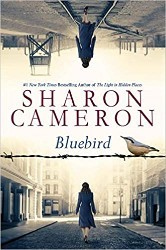In lyrical and flowing free verse, author Kip Wilson tells the story of young German Sophie Scholl. Sophie comes of age while the Nazis slowly and insidiously gain power, changing life as she knows it and inspiring her to follow her conscience to resist their ever-increasing influence. Based closely on actual events, Wilson’s story presents a frightening picture of a polarizing society with a courageous few willing to risk imprisonment and death in order to protest, but with many more either supportive of Hitler’s regime or too afraid to act.
The story travels back and forth in time, highlighting the growing terror, as well as Sophie’s maturing point of view. As events unfold, the reader sees Sophie transform from an enthusiastic member of a Nazi youth group and Hitler supporter, into a young woman inspired to activism in an idealistic attempt to fight the growing horror. Sophie watches her Jewish friends and neighbors first face discrimination, then the violence of Kristallnacht, and eventually their steady disappearance from Germany’s cities and towns. Rumors about where they have gone shock and terrify her, reinforcing her wish to be an agent of change.
In a futile attempt to rouse fellow university students and others to resist, Sophie, her brother Hans, and a few close friends establish a resistance group under the name White Rose, to print and distribute anti-Nazi leaflets on campus and send them through the mail. When she is caught and forced to confess, she faces death bravely with the firm conviction that she has done what was right.
The author’s choice to tell the story through poetry reflects the beauty and optimism of Sophie’s early years in a warm and supportive family, her relentless determination to make a difference, and, in contrast, the growing darkness surrounding her.
An appendix updates the reader about the fates of the participants in Sophie’s story. There is also a glossary of German terms used in the book and an extensive author’s note which provides historical perspective as well as explicates which events were completely factual and which required a bit of poetic license.
This story is highly recommended — a disturbing and powerful recounting of a horrific time in history, it also presents a vivid and inspirational role model for readers to admire and emulate.
Michal Hoschander Malen is the editor of Jewish Book Council’s young adult and children’s book reviews. A former librarian, she has lectured on topics relating to literacy, run book clubs, and loves to read aloud to her grandchildren.





